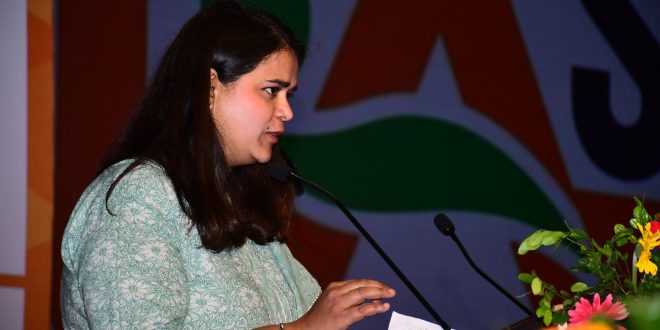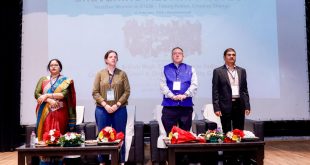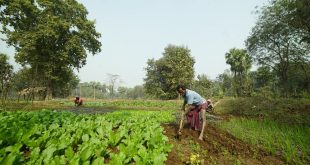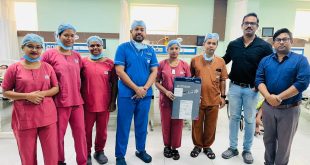Bhubaneswar: History has it that many women have turned to donkey’s milk to preserve their beauty and vitality.
Realising the potential of donkey milk, a UP-based start-up ‘Organiko’ has been manufacturing and marketing skin care products made of donkey milk.
Pooja Kaul, a resident of UP, is the founder of Organiko Beautifying Life.
Soaps made from donkey’s milk stole the show at the two-day conclave titled ‘Ideation to Commercialisation—Opportunities for Start-ups’ which began at the Siksha ‘O’ Anusandhan Deemed to be University here on Saturday.
Kaul claimed donkey’s milk comprises several anti-ageing properties, skin nourishment components and contains healing potential.
After collecting donkey’s milk from Delhi NCR and UP, the start-up has been manufacturing different kinds of soap from it. Donkey milk, priced at Rs. 1300 per litre, contains high amounts of anti-ageing, nutraceutical, antibiotic and nutritional substances, she said.
Pooja said the benefits of using this soap could be ascertained within 4 to 5 weeks.
“Within 3 years, we have produced anti-aging, anti-acne, anti-pigmentation and hydrating soaps without using any chemicals,” she said.
The market price of this soap has been fixed at Rs 500.
Similarly, Mr. Devaram Purohit of Gujarat, who has started a start-up by using manure prepared from cow urine in agriculture, also narrated his experience in the conclave.
Mr. Purohit, who started a start-up named Dhenuprasad Agrovat Pvt. Ltd., explained how organic agriculture could be done without chemicals by using cow urine powder as fertilizer.
On the other hand, two youngmen from Kalahandi, Mr. Biren Sahu and Mr. Biswabandhu Padhi, who have launched a start-up named ‘Manikstu’, provided information on how farmers could be encouraged to take up goat farming and prepare ghee from goat milk.
Mr. Swapnil of Pune spoke about how to protect agricultural land by making polyhouses and plastic bio-degradable sheds for farming in 45 degree C summer heat. He has created a start-up called Ambronics Private Limited to pursue this goal.
The conclave has been organised by Livelihood Alternatives, a social enterprise, in association with Institute of Rural Management Anand (IRMA)-iSEED Foundation, PACE Foundation and SOA.
As many as 60 start-ups of the country, including 10 from Odisha, working on new technology have joined the conclave. Around 300 farmers from 65 blocks of Odisha are also attending this conclave.
The objective of the conclave is to create an enabling framework where ideas, technological know-how and methods emanating from the social start-up eco-system could be leveraged for a market fit product.
During the inaugural program, SOA Vice-Chancellor Prof. Bijay Kumar Saoo delivered the welcome speech while Chairman and Managing Director of Livelihood Alternatives Mr. Sambit Tripathy gave detailed information about the conclave.
Mr. Tripathy gave information on how to adapt to climate change and increase agricultural production by educating the new generation about new technologies and ideas.
Prof. Umakanta Das, Director of Indian Rural Management Anand (IRMA) participated as the chief guest in the program and urged students to focus more on entrepreneurship instead of chasing jobs.
He opined that agriculture was an important work, so students should focus on it.
In the program, Dr. Shankar Goenka, columnist, motivational speaker and Managing Director of Wow Factors India Pvt, spoke about the drones manufactured by his company.
Dr. Goenka said that the use of drones in agriculture would result in less water consumption, prevent farmer deaths from snake bites and will protect their health while using pesticides and fertilisers.
He said that more than 50,000 farmers die from snake bites in India every year.
He said that his goal was to introduce drones in agriculture in more than 6 lakh villages in India within the next 3 years.
Mr. Ranjan Mahapatra, Director (Human Resources) of IOCL and Mr. Y. Viswanath Goud, Managing Director of LIC-HF also spoke on this occasion.
Livelihood Alternatives also signed MoUs with various start-ups during the day.
At the end of the program, Dr. Rakesh Arrawatia, Chairman of IRMA-ICD proposed the vote of thanks. A start-up exhibition was also inaugurated on this occasion.
 Update Odisha-Latest Odisha News I Breaking News Get latest news on Odisha, Govt. Jobs, OSSC, OPSC, Entertainment, Crime, Sports, and Education
Update Odisha-Latest Odisha News I Breaking News Get latest news on Odisha, Govt. Jobs, OSSC, OPSC, Entertainment, Crime, Sports, and Education



